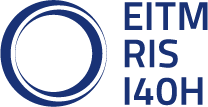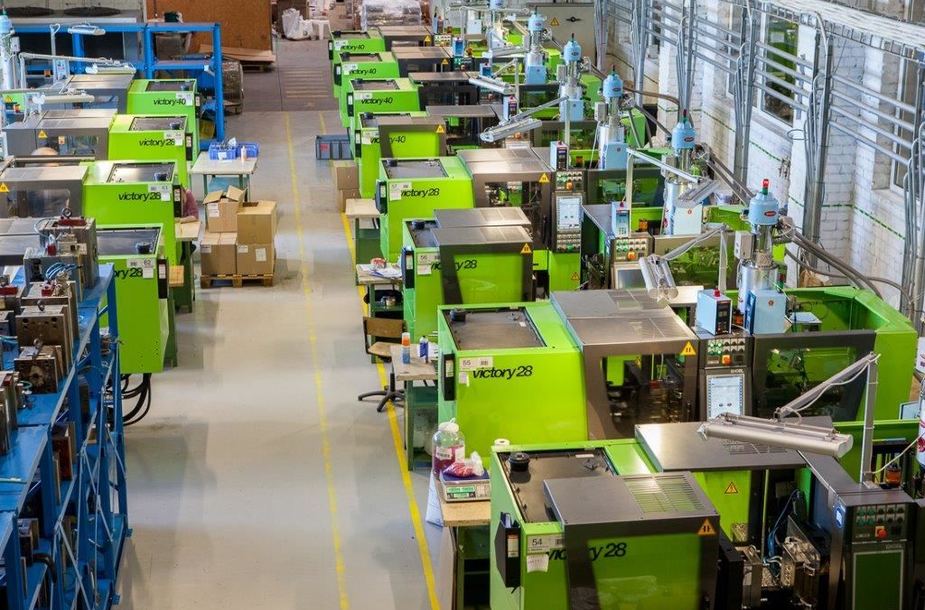EIT Manufacturing welcomes the Lithuanian Ministry of Education, Science and Sport to its offices in Paris
On 6 December, representatives of EIT Manufacturing met a delegation of the Ministry of Education, Science and Sport of Lithuania to identify synergies that can further enhance the innovation capacity of the country.
Lithuania is among the top locations for manufacturing with a larger part of its total value added generated by the manufacturing industry, focused on the automotive and industrial machinery sectors. In this context, EIT Manufacturing, a Knowledge and Innovation Community supported by the European Institute of Innovation and Technology (EIT), a body of the European Union, has been eager to strengthen ties with the Lithuanian national authorities in order to contribute to the flourishing Lithuanian manufacturing industry.
On 6 December, EIT Manufacturing welcomed Vice Ministers for Education, Science and Sport Ms. Agne Kudarauskienė, and Mr. Gintautas Jakštas in its offices in Paris. They were accompanied by Ms. Jurgita Petrauskiene, counselor for Education and Science in the permanent Representation of Lithuania to the OECD and former Minister of Education and Science. EIT Manufacturing was represented by its CEO, Mr. Klaus Beetz, Dr. Konstantinos Georgoulias, Director of Regional Innovation Scheme (RIS) and EU Affairs, and Ms. Francesca Girardi, RIS Operations Manager.
Klaus Beetz, CEO of EIT Manufacturing, explained that “EIT Manufacturing’s goal is to bring the manufacturing actors in Europe together in innovation ecosystems, by integrating the three sides of the knowledge triangle: Education, Innovation and Business Creation. Collaborating with national authorities, especially the ones from EIT RIS eligible countries, is extremely important for our mission.”
During the meeting, EIT Manufacturing presented its main activities implemented in Europe covering the areas Innovation, Education and Business Creation. The host also provided insights and opportunities under the EIT Regional Innovation Scheme (RIS) for stakeholders coming from the Lithuanian manufacturing sector. The Regional Innovation Scheme (RIS) is the EIT Community’s outreach scheme to enable the transfer of good practices, experience and know-how emerging from the EIT Community’s activities, to widen participation in EIT activities across Europe and to ultimately boost the innovation capabilities of the RIS eligible countries by strengthening linkages among key innovation actors. The two delegations then elaborated on concrete areas of possible cooperation, diving deeper into the education and training opportunities provided by EIT Manufacturing.
“We are glad to see what EIT Manufacturing can offer to enhance innovation and to up- and reskill the manufacturing workforce, especially with the EIT Manufacturing RIS Programme”, said Vice Minister Agne Kudarauskienė. “The work that EIT Manufacturing does in terms of educating students in high schools and universities, and with its specialised Master and PhD-Programmes, is very important in order to develop the entrepreneurial skills needed for establishing and growing innovative businesses”, added Vice Minister Gintautas Jakštas.
The two parties agreed that a cooperation between EIT Manufacturing and the Lithuanian Ministry of Education, Science and Sport in common areas of work would be highly beneficial for the Lithuanian innovation ecosystem. The meeting represented a first step towards a fruitful long-term collaboration.
“It was great to see that we share the same vision for educating, upskilling and reskilling the current and future Lithuanian manufacturing workforce. It has been a very productive discussion and we all agreed to meet soon again and discuss further our plans”, highlighted Dr. Konstantinos Georgoulias after the meeting.
Background Information
The European Institute of Innovation and Technology (EIT) strengthens Europe’s ability to innovate by powering solutions to pressing global challenges and by nurturing entrepreneurial talent to create sustainable growth and skilled jobs in Europe. The EIT is an EU body which is an integral part of Horizon Europe, the EU Framework Programme for Research and Innovation. The Institute supports the development of dynamic pan-European partnerships – EIT Knowledge and Innovation Communities – among leading companies, research labs and universities.
EIT Manufacturing is supported by the European Institute of Innovation and Technology (EIT), a body of the European Union. It is one of eight innovation communities within EIT. The others are EIT Climate-KIC, EIT Digital, EIT Food, EIT Health, EIT InnoEnergy, EIT Raw Materials, and EIT Urban Mobility. EIT Manufacturing’s main goal is to bring European stakeholders focused on manufacturing together in innovation ecosystems that add unique value to European products, processes and services and inspire the creation of globally competitive and sustainable manufacturing. EIT Manufacturing brings together more than 65 organizations (universities, research institutes and business).








